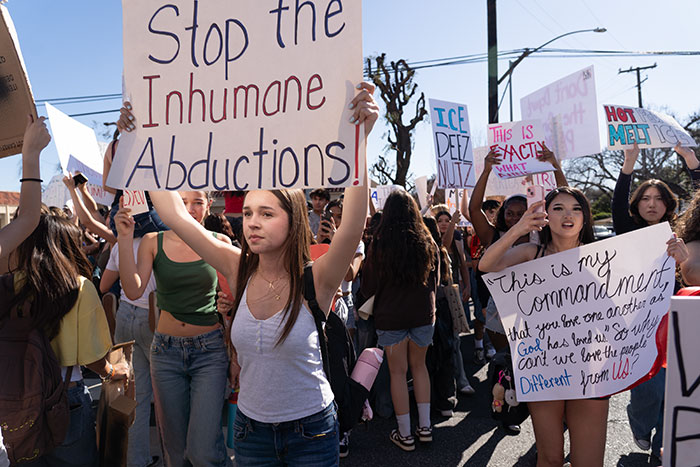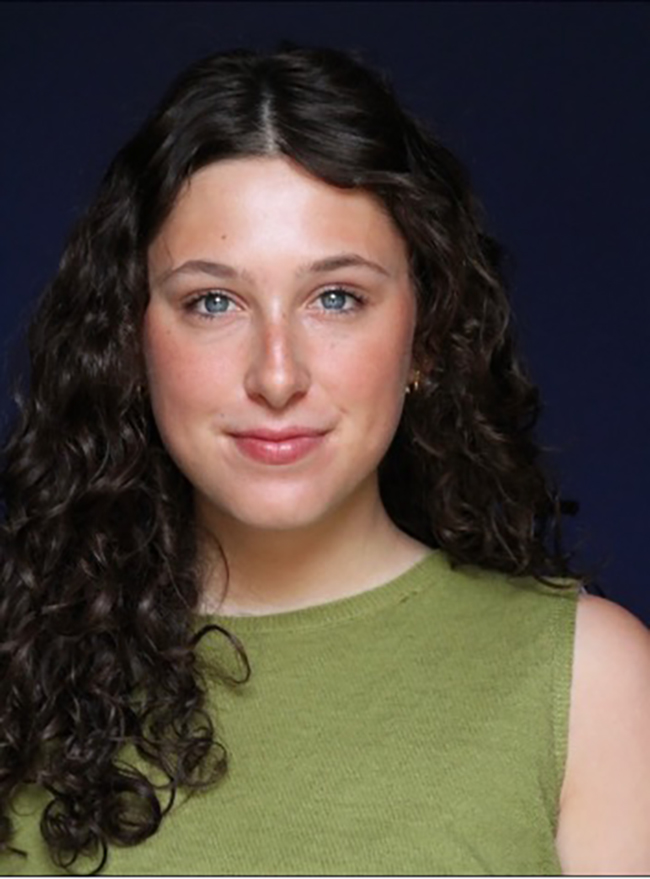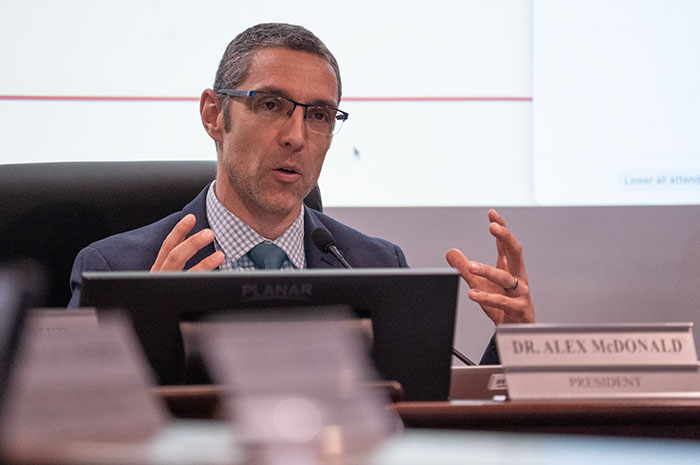School board candidates show differences at forum
The topic of Claremont Unified School District’s interdistrict transfer (IDT) students continues to be one of the biggest issues among members of the Claremont community.
School board candidates Joe Farrell, Hilary LaConte and Sam Mowbray fielded 14 questions during the Active Claremont sponsored candidates’ forum on Thursday with 4 of the questions focusing on IDTs. Other questions that came from the estimated 50 people in attendance touched on topics such as how to retain a superintendent, the candidates’ positions on teaching gay history, how to go about a future bond measure and the biggest challenges facing the district over the next decade.
“I thought things went pretty good and we had a lot of questions come through,” said Active Claremont past president Brian Bowcock, who served as the event’s moderator. “With all the questions being on cards face down, it was hard to avoid repetitive questions. But I think everything was fair.”
Ms. LaConte and Mr. Mowbray both proclaimed their support of the district’s current level of IDTs. Around 1250 of the district’s roughly 7000-student population live outside of Claremont.
According to the 2 candidates, the elimination of transfer students would have financial and educational ramifications for CUSD.
“Losing all interdistrict transfers means a loss in revenue of about $6.7 million annually in state funding after the first hold-harmless year,” Ms. LaConte said. “As a rule of thumb, the closure of an elementary school site is expected to generate $350,000 in annual savings. This information is from Blattner & Associates. That would leave us with a significant loss of revenue and loss of employment for a significant number of staff in what is a dire economic situation already.”
Mr. Mowbray discussed the value of having neighborhood schools and how the IDTs allow Claremont residents to have greater school choices.
“It [idea of interdistrict transfers] supports the idea of the neighborhood school,” he said. “Back when we were doing Measure Y, we were very aware that we had some schools that had very low attendance. And the decision was made at that time to go ahead with the renovation of those schools with the idea that we were going to promote interdistrict transfers.
“It also supports the idea of intradistrict transfers because our parents are able to select the [elementary] school that they want. [And] it supports advanced courses at [Claremont] High School.”
Mr. Farrell believes more information needs to be available to determine whether IDTs are financially benefiting the district. The Claremont resident does not believe the recent IDT report by Blattner & Associates takes into account the main operating costs of the district.
“I cannot say that I am for or against interdistrict transfers until I get some answers,” Mr. Farrell said. “The answers I’m looking for are related to what it really costs to run a school. Yes, you can close a school for $360,000 but what about all the other expenses that are out there? Those include the principal, the staff, water, electricity and gas—all the associated costs of operating a structure. I don’t know what those numbers are because those numbers are not in this report.”
An audience member questioned the board candidates about their views on teaching gay history. California Governor Jerry Brown signed Senate Bill 48 (FAIR Education Act) into law in July requiring the history and contributions of Pacific Islanders, persons with disabilities, gay, lesbian, bisexual and transgendered persons to be included in history instruction.
While Ms. LaConte said the district would continue to teach according to whatever the state standards are, Mr. Farrell opposed the idea of teaching history according to special groupings.
“I’m against teaching gay history in our schools. I’m against teaching straight history in our schools,” Mr. Farrell said. “I’m against teaching white history in our schools. I’m against teaching black history in our schools and I’m against teaching Hispanic history in our schools. I am for teaching history in our schools. If someone has made a contribution to American history or world history, depending on what the class is, then they should be recognized in the textbook for their accomplishments.”
Mr. Mowbray seconded Mr. Farrell’s comments and believes the focus on history should be on people’s contributions.
“I think the question is really about respect for people. And teaching a special course on the achievements of people who are gay, may or may not be the right thing to do,” Mr. Mowbray said. “I agree with Joe [Farrell] that we should be teaching history. We shouldn’t shy away from noting that a person who made a certain contribution is gay, I don’t see anything wrong with that. But I don’t think we need to overemphasize that at all. It’s about the accomplishment.”
All 3 candidates agreed that a different approach than that taken with Measure CL would be needed to successfully pass a future bond. Mr. Farrell said transparency was the biggest issue of the failed bond measure, Mr. Mowbray stressed the need for better communication and Ms. LaConte believes there needs to be more community participation.
“My lesson as a board member is that it is clear that any future planning of revenue generation needs to be entirely different,” Ms. LaConte said. “There needs to be lots and lots of involvement of the community up front [and] throughout the process with much more participation and explanation. When the time is right, we’ll need to have that conversation again and I look forward to a completely different and positive process and outcome.”
Two of the 3 candidates will be elected to the 2 open CUSD board seats on Tuesday, November 8th.
—Landus Rigsby








0 Comments